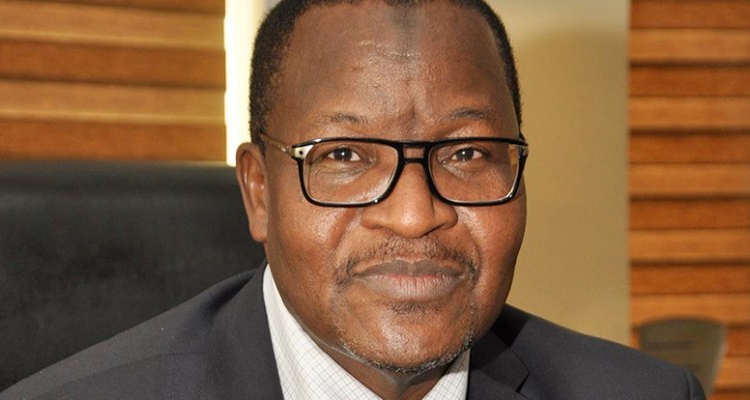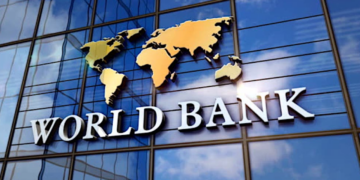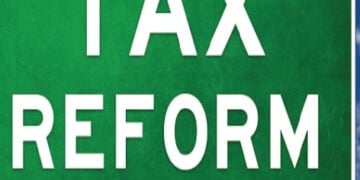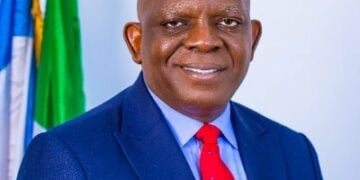The Nigerian Communications Commission (NCC), under the leadership of its Executive Vice Chairman and Chief Executive Officer, Prof. Umar Garba Danbatta, has been playing critical role in supporting the Central Bank of Nigeria’s financial inclusion drive. Three of NCC’s initiatives in this regard, concerning deepening of broadband, introduction of the Unstructured Supplementary Data Service (USSD) for banking transactions as well as its role in fast-tracking the National Identification Number (NIN)/Subscriber Identity Module (SIM) harmonisation, among others, are worthy of examining.
According to a World Bank Report and The Enhanced Financial Innovation and Access (EFInA), an organisation that promotes financial inclusion and an organization that conducts biennial report on Nigeria’s financial inclusion industry, financial inclusion means that individuals and businesses have access to useful and affordable financial products and services that meet their needs – transactions, payments, savings, credit and insurance – delivered in a responsible and sustainable way.
The socio-economic impact of having a sustainable financial inclusion drive is stressed in a report by Boston Consulting Group (BCG), a global management consulting firm, commissioned by Telenor, a multinational telecommunications company. The report clearly estimates that 1 per cent increase in financial inclusion increases the real Gross Domestic Product (GDP) per capita by 3.6 per cent.
Experts have clearly stated that access to financial services is a crucial enabler of economic and social transformation of any country. Until recently, policy efforts to develop financial services have focused on the formal banking sector and its intermediating function in converting savings into investment. This meant that the urban population enjoyed access to financial services while financial institutions neglected low-income population segments (who generated low or negative returns) and rural areas users.
Indeed, financial access facilitates day-to-day living, and helps families and businesses plan for everything from long-term goals to unexpected emergencies. As account holders, people are more likely to use other financial services, such as credit and insurance, to start and expand businesses, invest in education or health, manage risks, and weather financial shocks, which can improve the overall quality of their lives.
In Nigeria, the Central Bank of Nigeria (CBN) has been at the forefront of driving financial inclusion and the Nigerian Communications Commission (NCC) has been a key partner, playing major role of stimulating deployment of digital infrastructure engendering digitally-promoted financial inclusion in Nigeria.
Facilitating Broadband Penetration
The NCC has been actively involved in the actualisation of the Federal Government’s target to deepen financial inclusion in Nigeria. The NCC has ruralized that to achieve an accelerated financial inclusion target that the country desires, even as the population grows, technology and more importantly, broadband, has to play a massive significant role and what I see technology doing in terms of Nigeria’s financial inclusion is actually to democratise access.
In doing this, the NCC embarked on various regulatory initiatives that have continued to increase access to telephone lines and improve access to high-speed Internet or broadband. This is in line with the Commission’s mandate of ensuring universal access to telecoms services in the country consistent with the International Telecommunication Union (ITU)’s goal of achieving digital inclusion, globally. The combined regulatory efforts of the Commission in driving digital infrastructure across the country has led to the increased in broadband penetration to about 50 per cent.
This means more Internet access that is available and affordable to telecom consumers who will like to do financial transactions on their phones through their mobile apps, on or the webs using their computers as well as on other platforms such as the Point of Sales (PoS) or on the Automated Teller Machines (ATM). Without adequate access to the Internet, financial transactions will not be able to take place on all of these platforms by the banking public.
While the Infrastructure Companies (InfraCo) project of the NCC is playing a role, existing incumbent telecom companies such as MTN, Glo, Airtel and 9Mobile, IHS, among others continue to deploy infrastructure that enable financial services transaction through digital platforms. The Commission also has issued 3.5Ghz spectrum licences to telecom companies which have started deployment of Fifth Generation (5G) networks in the country. This means faster Internet access, increased capacity for traffic and low latency for transactions. With resilient Internet-enabled digital infrastructure available, more Nigerians are included in the formal financial services ecosystem as they are able to implement financial transactions without having to visit a banking hall.
USSD’s ‘magic’ for banking services
Today, the number of active telephone lines being used by Nigerians has significantly increased from about 400,000 in 2001 to about 230 million as of February, 2023. As telecommunication services and infrastructure became more accessible in the country, the banks identified the Unstructured Supplementary Data Service (USSD) channel as a cost-efficient way of delivering financial services to their customers. The banks subsequently applied for and were granted USSD short codes by the Commission to deliver financial services to Nigerians by the Commission. The banks, Other Financial Institutions (OFI) and mobile money operators licensed by the CBN are now leveraging the large number of mobile subscriptions in the country to provide mobile-based financial transactions to Nigerians, leveraging the USSD platform on Mobile Network Operators (MNOs).
NIN-SIM Data Harmonisation for Credible KYC
Closely linked with the USSD system, is the effort of the Commission in ensuring that all Subscriber Identification Module (SIM) cards in the country are properly registered. As pointed earlier, as of December, 2020, there were over 204 million active mobile (SIM) numbers across licensed mobile networks in the country. To this end, the NCC ensures regular audit of the subscriber database of the MNOs to ensure there are no anonymous mobile subscriber on their networks. The NCC and telecom operators’ role in the National Identification Number (NIN)/SIM linkage exercise has further helped to improve the customers’ Know Your Customer (KYC) in the financial services. Indeed, mobile number has become a requirement for accessing financial services and helped to enhance confidence in the system.
The NCC’s collaboration with the National Identity Management Commission (NIMC) in this regard has been remarkable, as the NIN-SIM linkage exercise is improving credible identity management for national planning purposes, socio-economic transformation and for other legal commercial activities.
Further Commitments
Aside these three areas, there are also concrete initiatives between the NCC and other relevant institutions both indigenous and international, towards supporting various initiatives aimed at supporting the ongoing drive to extend formal financial services to Nigerians irrespective of their locations and circumstances.





